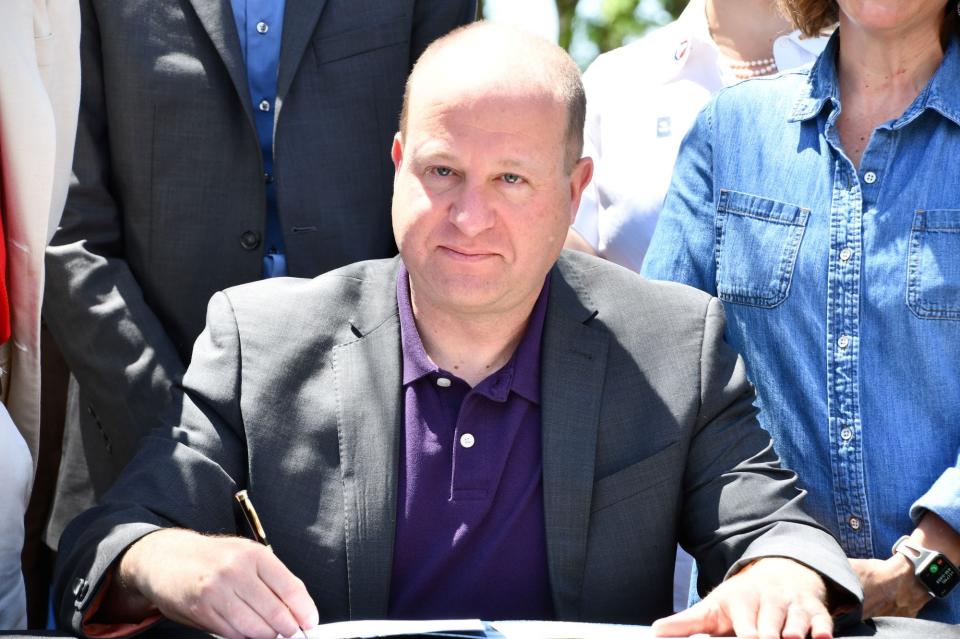Hospitals must say how much they charge for hundreds of procedures. Here's why many don't.
Since the beginning of 2021, a federal law has required hospitals to post prices and establish a consumer-friendly price list for 300 common procedures and services.
But a new study finds more than half of U.S. hospitals have failed to meet either of the two main requirements of the federal Hospital Price Transparency law, which aims to give consumers an opportunity to shop for prices before getting nonemergency medical care.
The Centers for Medicare and Medicaid Services has issued 352 warnings to hospitals about their failure to comply with the price transparency law. Only two hospitals have been fined. On June 7, CMS fined Northside Hospital Atlanta $883,180 and Northside Hospital Cherokee in Canton, Georgia, $214,320.
Although CMS issued corrective action notices to 157 hospitals that were warned but had not yet corrected shortcomings, some consumer advocates say the agency hasn't been aggressive enough in ensuring hospitals follow the federal law.
"They're not complying, and nobody's accountable," said Cynthia Fisher, founder of Patients Rights Advocate, a nonprofit that has pushed for price transparency.

The amount a hospital charges is important even if someone is insured because those consumers often must pay co-payments, deductibles that averaged $1,669 in 2020 before most coverage kicks in and coinsurance, a percentage of the bill.
The federal law requires hospitals post a searchable list of at least 300 medical services to allow consumers to shop and compare prices before receiving care. Hospitals also must post data files containing prices for a broad list of procedures in a computer-readable format so the information can be analyzed. Among the range of charges: discounted rates negotiated by different health insurers.
A study of 5,239 hospitals published this month in the Journal of the American Medical Association found 13.9% had "machine-readable" data files but no searchable database for consumers to compare prices. An additional 29.4% allowed consumers to shop for prices but did not post the more detailed data files. In all, only 5.7% of hospitals met both requirements, according to the study, which relied on data reported as of September 2021.
The study's findings echoed a February review of 1,000 hospitals by Patients Rights Advocate that found 14% complied with the price transparency law.
CMS officials defended their enforcement efforts, noting the agency reviews a hospital's price postings and documents deficiencies before taking action that includes written warnings and corrective action requests. The two Northside hospitals were fined after failing to heed the agency's request for a corrective action plan, a CMS official said.
Hospitals can be fined every day they don't comply, with larger hospitals paying $10 per bed per day up to a maximum daily fine of $5,500.
"CMS expects hospitals to comply with the hospital price transparency regulations that require providing clear, accessible pricing information online about the items and services they provide," said Dr. Meena Seshamani, CMS deputy administrator and director of the Center for Medicare. "Our enforcement actions affirm the Biden-Harris administration’s commitment to making health care pricing information accessible to people across the country, and we are committed to ensuring that consumers have the information they need to make fully informed decisions regarding their health care."
Hospitals say they are working to make pricing available. Efforts have been slowed by the detailed federal requirements as well as the COVID-19 pandemic, which required hospital staffs to prepare for new modes of care such as telehealth.
Furthermore, hospital officials said, studies showing most hospitals have not complied with the federal price transparency law are misleading.
"The numbers are just so far off," said Molly Smith, the American Hospital Association's group vice president for public policy. "The crux of the issue is that they're not the ultimate arbiters of this. The government is. We know a number of hospitals are in communication with CMS."
Colorado law pressures hospitals
Advocates of price transparency say it's an important tool not only for consumers but also employers who pay for insurance coverage.

In Colorado, a law signed by Gov. Jared Polis on June 8 bars hospitals that refuse to post prices from suing patients over unpaid bills. The law puts the responsibility on consumers to take legal action against hospitals that don't comply. If a patient sues a hospital and a court finds the hospital did not comply with the price transparency law, the hospital must refund payments and pay a penalty equal to the amount of the bill.
Fisher hailed the legislation as an important step for consumers, employers and others who want to shine a light on the often secretive world of medical billing.
"We have been blind to prices and blindsided by outrageous bills and the industry makes us pay with a blank check for whatever they choose to charge us," Fisher said. "As long as hospitals keep patients in the dark, they can choose to price whatever they want."
Fisher and other advocates expect that will change as more people analyze price data. Hospital charges can vary widely for the same procedure, depending on the insurance plan a patient uses or whether they pay a discounted cash rate up front.
At Northwestern Memorial Hospital in Chicago, listed prices for a spinal fusion ranged from $39,833 to $138,365, according to an analysis of listed prices of 14 insurance plans provided to USA TODAY by Cambridge, Massachusetts-based Visible Charges.
Visible Charges President Neil Mayle expects employers, brokers and unions will begin scrutinizing pricing when choosing an insurance plan and a network of medical providers. The data will become even more robust Friday when insurers will be required to report rates for a variety of medical services at both hospitals and outpatient settings.
Christine Cooper is an attorney and CEO of Aequum, a firm that represents consumers and employers seeking to challenge medical bills over charges they believe are unreasonable.
Cooper said she has represented consumers who have attempted to obtain pricing before undergoing an operation or procedure, only to face much higher charges when bills arrive.
When she represents consumers contesting such charges, she said hospitals or other providers often fight disclosing price lists, even when cases end up in court. So she welcomes the federal law mandating hospitals turn over such data.
But like others, she expects some hospitals will be slow to hand over such information. She also notes that pricing information alone does not speak to the quality of care a patient gets.
Cooper said even if CMS begins fining more hospitals, larger hospital systems may choose to not reveal pricing information and instead pay fines "that are not even putting a dent into their profitability."
"So there's not a lot of incentive to get them to comply," Cooper said.
Ken Alltucker is on Twitter at @kalltucker, or can be emailed at alltuck@usatoday.com.
This article originally appeared on USA TODAY: More than half of hospitals haven't revealed pricing data, study says.

